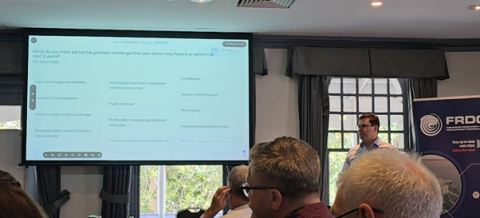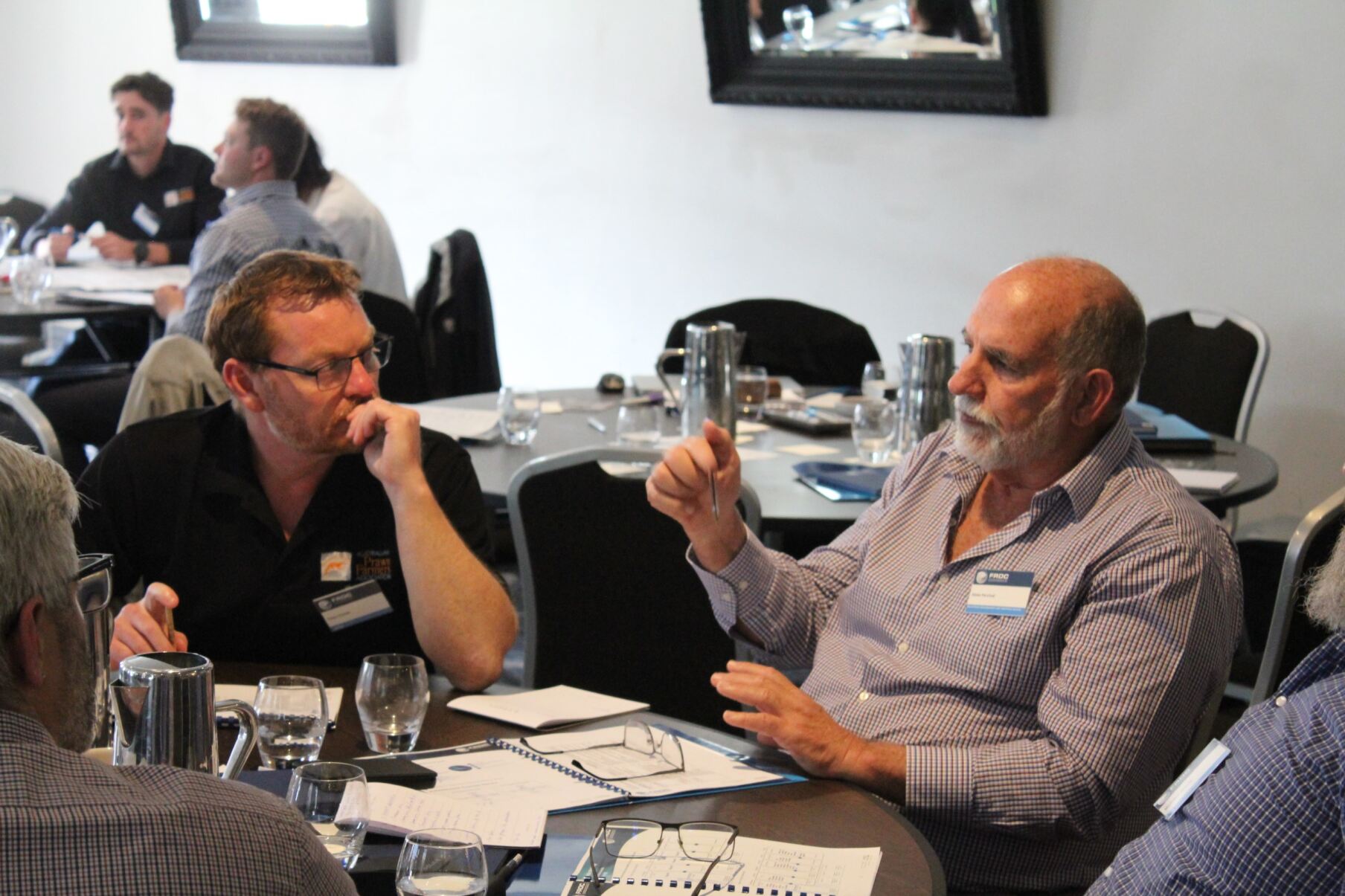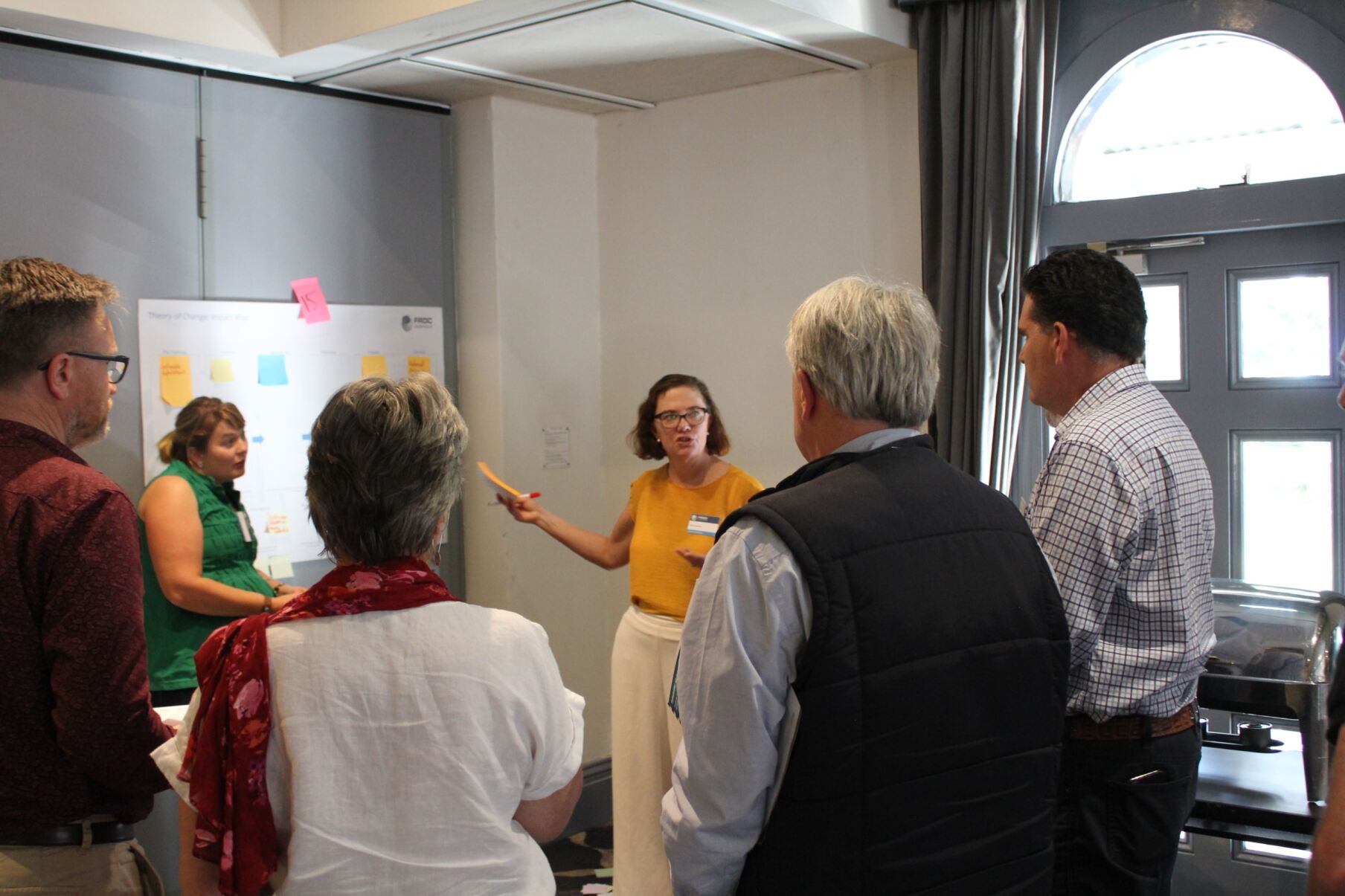Fishing and aquaculture stakeholders applied theory of change techniques to stimulate new thinking on cross-sectoral issues, challenges and opportunities gathered in FRDC's 'have your say' online discussions
With fishing and aquaculture facing increasing challenges to operate, including the oceans getting busier, the need for collaboration amongst sectors and innovation within fishing and aquaculture, is becoming a more urgent priority.
FRDC’s annual stakeholder workshop for 2023 was facilitated by Impact Innovation, who use design-led thinking inspiring workshop participants to consider diverse perspectives and navigate the complex operating environments of fishing and aquaculture.
FRDC General Manager of Strategy and Innovation, Matt Barwick, says Impact Innovation were chosen due to their excellent track record of getting people to work together to uncover novel ideas.
“We wanted to work with Impact Innovation and stimulate our stakeholders to map out a sustainable future whilst ensuring the needs of our diverse stakeholder groups are met,” Matt says.
Thinking through Theory of Change
The first day saw participants discussing each sectors pressing issues. With the use of a digital program called Menti, participants were able to see their answers to questions in a live-feedback loop displayed on large screens. The program then automatically clusters these words into common themes.

FRDC’s eight ‘Have your Say’ Online workshops, undertaken in the weeks prior to the workshop, reiterated many of the topics highlighted by workshop participants, in this important session. The online discussions were attended by over 250 participants from all ages and backgrounds, so they provided a broad framework for workshop participants in the room to consider the critical issues facing the fishing and aquaculture community.
“We hosted the online workshops so that we could hear from our grass-root stakeholders and ensure that their perspective informed the issues discussed in the room,” Matt says.
The second day saw participants working in small teams to tackle issues important to fishing and aquaculture community, such as spatial squeeze, profitability, biosecurity and climate change.

To help provoke thinking, groups were asked to use a Theory of Change Impact Map. This required more than a quick solution or fix, groups had to identify the key changes needed to be made to processes, structures, and ways of thinking, throughout the whole supply chain.
General Manager of Commercialisation at Impact Innovation, Angus Crossan, states the goal for each group was not to produce “perfect” Impact Maps, but to highlight the unpredictability and complex decision processes that arise with tackling system-wide issues within fishing and aquaculture.
“The idea here was to get groups to think ‘Out of all the solutions and activities we could do, which ones would create the most impact?’ It requires a different sort of thinking than most people are used to,” Angus says.

Stakeholder workshop participant and Chief Executive Officer of OceanWatch Australia, Lowri Pryce, enjoyed the challenges and discussions the impact map process delivered.
“Understanding people’s problems, their response to these problems and where they want to go in the future is why I, and the rest of us, are here,” Lowri said.
What's next?
Matt says that the workshop has helped inform FRDC's strategic direction for its current and future R&D and annual operational plans.
“We will also continue to try and increase Indigenous voices, younger voices and female voices both in the stakeholder workshops and online 'have your say' discussions.”
“The workshops are an excellent way for us to provide value to our stakeholders whilst getting feedback on our processes so we can improve them for next year. I see it as continuous evolution and innovation,” Matt says.
You can view the workshop presentation slides and draft final report here.





